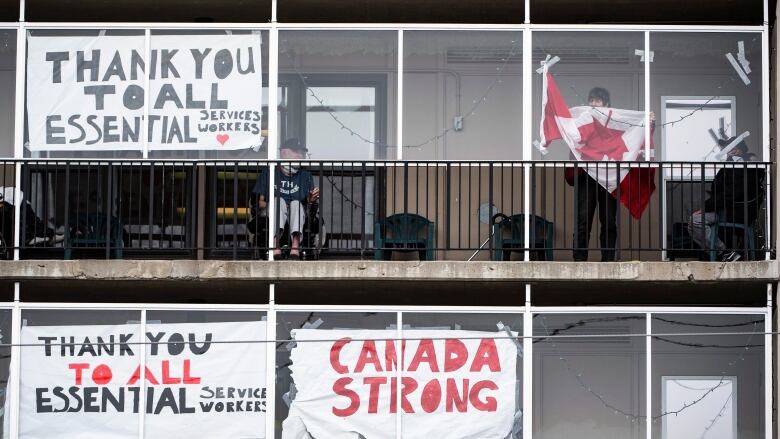Fewer COVID-19 deaths in B.C. than Ontario long-term care credited to funding, policy
B.C. was better prepared, responded in more co-ordinated and decisive way than Ontario, researchers find

Quicker, more decisive action against COVID-19 in British Columbia is one of the reasons the province has suffered far fewer long-term care deaths than Ontario, anew study says.
The analysis published on Wednesday in the Canadian Medical Association Journal also points to less funding, more privatization and less co-ordination between homes and hospitals as factors that drove the spread of the novel coronavirus among Ontario's most vulnerable.
One of the paper's authors, Dr. Irfan Dhalla of St. Michael's Hospital and the University of Toronto, saidthere's already been a worrying rise in infections as parts of Ontario grapple with a second wave.
And despite lessons learned from the first wave of the pandemic, Dhalla saidfront-line workers say the province is still not adequately prepared for a new influx of long-term care cases.
"Long-term care has been somewhat neglected and somewhat underfunded across the country," Dhalla said Wednesday, nevertheless commending B.C. for acting decisively to limit cases and deaths.
"All of these factors mean that when the pandemic hit, the chances of a better outcome or a less worse outcome in British Columbia, were more favourable."
As of Sept. 10, Ontario reported 1,817 resident deaths from COVID-19, compared to 156 deaths in B.C. The number of cases among LTC residents in Ontario totaled nearly 6,000 compared to 466 in B.C.
This week, Ontario Premier Doug Ford pledged more measures to rein in COVID-19 at long-term care homes, including restrictions to visitors in provincial hot-spots starting Monday.
Ford also announced $540 million to help long-term care homes support staff, pay for renovations and bolster infection control.
But the Ontario Long Term Care Association, which represents home operators, has said homes are reeling from a staffing crisis and need more support.
Dhalla saidB.C.'s system entered the pandemic with several advantages, including better co-ordination between long-term care, public health and hospitals, more money for long-term care, fewer shared rooms and more comprehensive inspections.
In 20182019, the researchers said the average combined funding per resident per day was higher in British Columbia ($222) than in Ontario ($203). Most of the funding was used to pay staff in both provinces.
Long-term care residents were more likely to live in shared rooms in Ontario (63 per cent) than in B.C. (24 per cent).
B.C.'s Dr. Bonnie Henry acted decisively
Dhalla also credited B.C. provincial health officer Dr. Bonnie Henry with quicker action to address staffing and infection prevention and control, as well as her ability to harness public support with clear, consistent messages.
"Bonnie Henry has received worldwide acclaim for her leadership, the compassion that she demonstrates from the podium, her willingness to act decisively," saidDhalla.
WATCH | COVID-19 outbreaks return in Ontario long-term care homes:
In contrast, Ontario's health system was in a state of flux as regional health networks and several provincial agencies were merged into a single agency called Ontario Health, saidthe paper.
That saw the departure of several senior leaders who have yet to be replaced, and came amid budget cuts for Public Health Ontario and individual public health units.
Dhalla acknowledged that some Ontario regions and facilities did better than others because of quicker COVID-19 responses, "but that didn't happen across the province."
The researchers said that since residents of long-term care homes will always be vulnerable to infections, they recommended that governments:
- Ensure clear, consistent communication.
- Respond rapidly and proactively.
- Ensure disparities between for-profit and non-profit homes do not affect quality of care.
- Move to single rooms.
- Ensure infection prevention and control teams can support LTC homes during outbreaks.
- Consider organizational structures to support integration between LTC, public health and hospitals.
Even short delays in introducing precautions for LTC homes may have had a substantial effect on the burden of COVID-19 given the nature of exponential growth, the study's authors said.
With files from CBC News













_(720p).jpg)


 OFFICIAL HD MUSIC VIDEO.jpg)
.jpg)



























































































